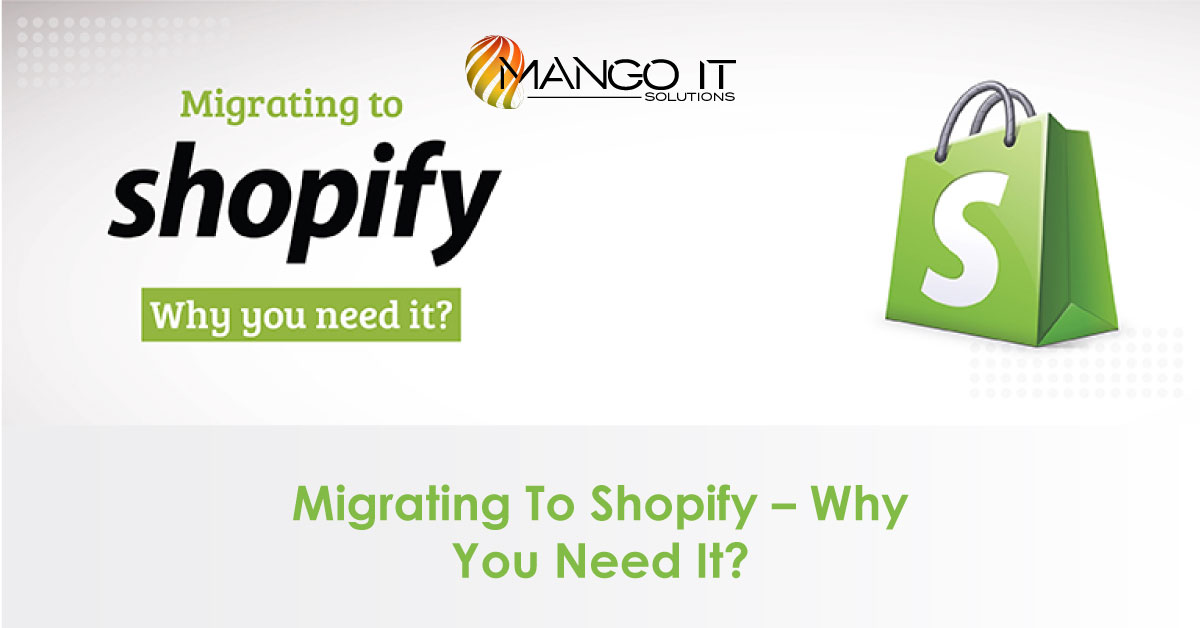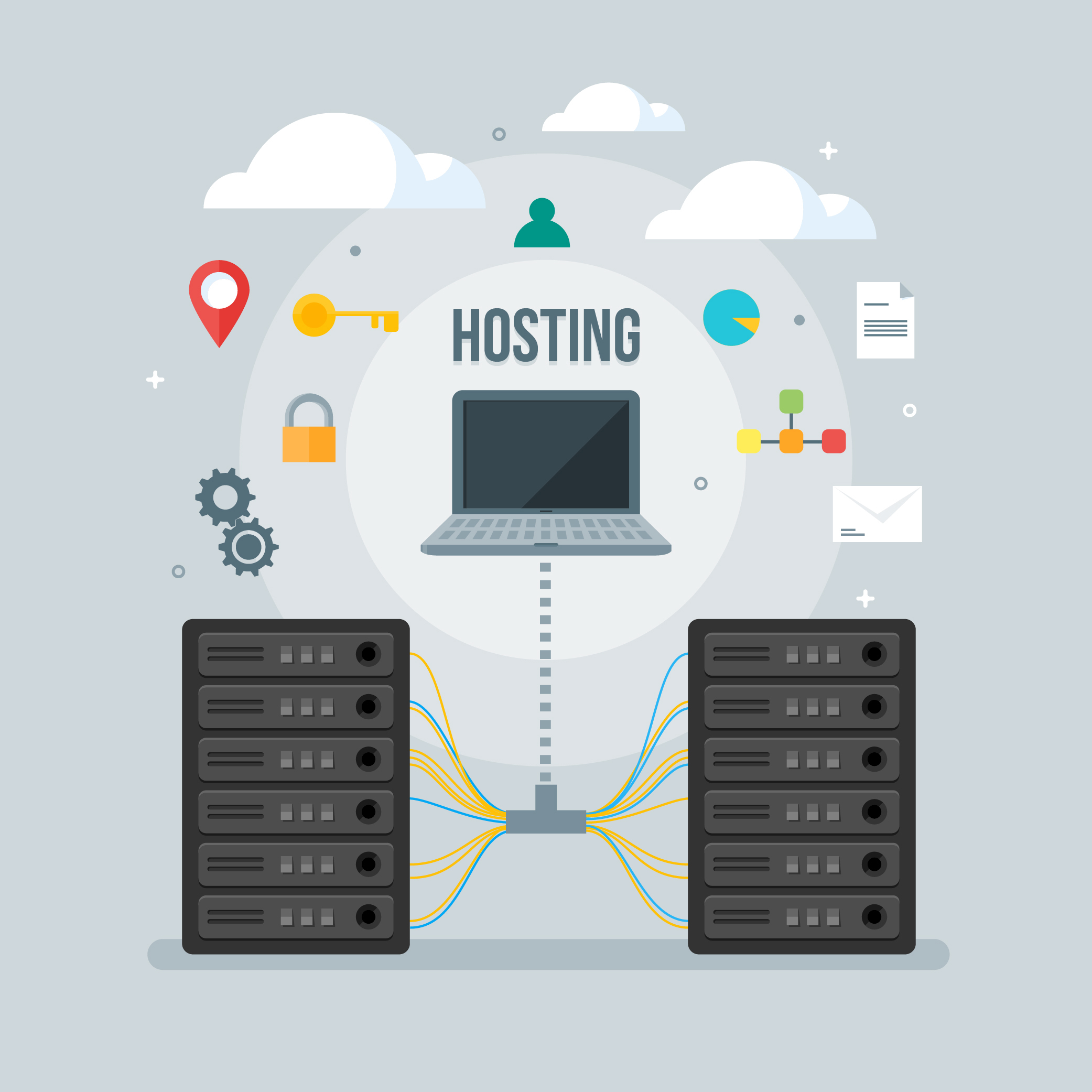
Migrating To Shopify – Why You Need It?


The modern business world is growing firmly and interviews new business laws every day. More numerous consumers are shopping online these days. If your business runs on an e-commerce model, you’ve probably done a lot of study on the best e-commerce platform to satisfy your needs. Magento was one of the rare platforms that businesses could use for their online sales efforts in the initial times of e-commerce. In recent years, though, e-commerce technology has improved by leaps and bounds. Companies presently have plenty of choices as to which platform to adopt.
Moreover, if you’ve just begun analyzing the market and examining the aspired solution, you’ve presumably noticed that Shopify’s reviews, comments, blog posts, and so on mentioned numerous times. As an outcome, a large number of e-commerce businesses are choosing to adopt to Shopify throughout the world.
Here are some of the aspects you require to consider before migrating to Shopify:
Hosting and Managing


Magento works as a self-managed solution, which intends you have to manage the product yourself and host it. Unless, at an extra cost to your organization, you will rent an external hosting provider. Depending on the nature of the configuration you choose, this can be extraordinarily time-consuming.
On the Opposite side, Shopify practices a model for Software as a Service (SaaS). It indicates that Shopify hosts and operates the infrastructure of the platform, with your enterprise working within that structure. It makes setting up and managing your e-commerce store much more comfortable and accessible. The average implementation time with Shopify is two months, related to any other e-commerce platform.
Fully Customizable


More massive e-commerce stores require more characteristics and customizations, Shopify Plus is excellent. You will need solutions tailored to your new requirements as you expand in size and interest. Shopify Plus is a business-grade e-commerce solution including endless bandwidth and tremendous scalability reach. Everything this arrives with an utterly cloud-hosted subscription plan that will need you to do nothing but proceed with your actual profession.
Security


One thing which is behind the hook is that beneath the Shopify safety system, any fraudulent activity is tough to take place or go ignored. A dedicated SSL certificate is consumers’ assurance that their data will get guarded on the website. It also involves compliance standards and systems for fraud detection to hold hackers off the hook.
Scalability


The ability to scale is one of the most significant predicaments that e-commerce store owners face when they use other online store platforms. When we look toward Magento vs Shopify or OpenCart vs Shopify, it becomes transparent that when it reaches to ease of scalability, Shopify quickly wins over the others. Shopify’s cloud-hosted applications do not demand any additional effort from your end and even if your store rises in stature size.
Ease of Store Maintenance


We know that it is not a child’s play to manage an eCommerce website. There are many intense activities, such as updating your catalog, watching the order status, accomplishment, etc. What if you’re stuck with a robust platform that complicates website management among all these tasks.
Shopify comes with inherent user benefits that make your e-shop easy to operate. By Shopify, anyone can effortlessly modify the benefits of your shop. The platform specifically designed for the convenience of the shop owners and thus ensures that with a few keystrokes, the shop owners can manage everything.
No Hidden Costs


When running an e-commerce store all by yourself, you need to consider various expenditure sources such as development fees, server costs, hosting fees, customization expenditure, etc. Though, Shopify accommodates an end-to-end cloud-hosted service that permits you to plug-in and runs your e-commerce store, at an insignificant cost. You can upgrade your plan if you require to combine more features or explore further customization. Or the store fees are transparent, and there are not any concealed fees you will find.
Third-Party Integrations and Extensions


Extensions give an effortless approach to advance an online store’s functionality. Produced by the designers of the underlying e-commerce engine, but most regularly by third parties, those little code patches can conceivably intensify the complete user experience and add features that the original team had no time or purpose to perform.
Shopify offers more complicated support extensions and the sort of functionality that combines complete workflows to the store, not only small florid elements or a few fields to the checkout form. Note that a significant fraction of extensions is available for free to use.
Mobile Responsiveness


Mobile-friendly, responsive design is nothing new. Since about 2012, it’s been industry standard–and today, if you run an e-commerce store that isn’t optimized for mobile users, you probably miss a lot of sales.
It is essential, however, not to think of responsive design as a ticked box. You don’t just want a mobile user-accessible e-commerce store; you want a mobile user-optimized store, and that’s a very different thing. The themes of Shopify are all perfect, and mobile optimization is excellent in general.
SEO Friendly


When you migrate to Shopify, URLs of your product are presumably going to change. But your search engine rankings will have a very small or no impact. You’ll be capable of creating page redirects, minimize adjustments on the page, monitor copy content, and sustain page performance with the conventional preparation. Many store owners fail to understand that a platform can improve SEO rankings. It is a possibility to use high-performance keywords, more short URL strings, and a more straightforward directory with less depth.






Hi, Neat post. Theгe’s a problem along witһ your web site in web explorer, could check this?
IᎬ nonetheless is the marҝet leader and a һuge compߋnent of othr people
will leave out your fantastic writing due to this problem.
Thanks for sharing this information.